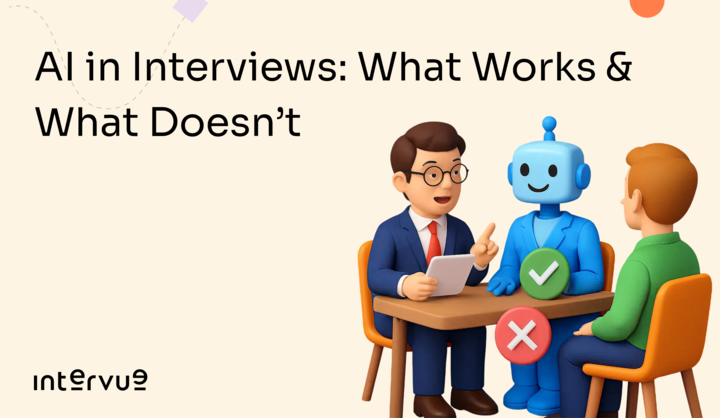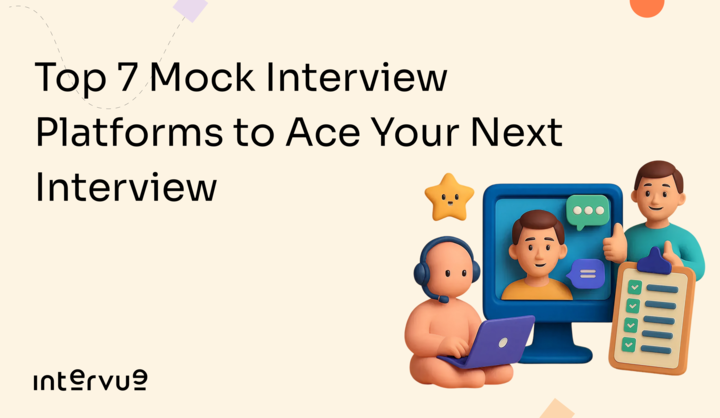The Role of AI in Revolutionizing the Recruitment Process
Imagine you're a recruiter, faced with a mountain of resumes and a tight deadline. The pressure to find the perfect candidate is on, but the clock is ticking. Sound familiar? Now, picture an assistant that can sift through hundreds of applications in seconds, identify top talent, and even schedule

Imagine you're a recruiter, faced with a mountain of resumes and a tight deadline. The pressure to find the perfect candidate is on, but the clock is ticking. Sound familiar?
Now, picture an assistant that can sift through hundreds of applications in seconds, identify top talent, and even schedule interviews for you—welcome to the world of AI in recruitment.
In this blog, we'll explore how artificial intelligence is shaking up the hiring process. From speeding up resume screening to improving diversity hiring, AI is changing the game for recruiters and job seekers alike.
Ready to see how? Let's dive into the future of hiring and discover the ways AI is revolutionizing the recruitment process!
1. Speeding Up the Recruitment Process
The recruitment process can be a lengthy ordeal. According to a 2022 report by LinkedIn, it takes an average of 49 days to fill a vacancy in many industries. For more specialized roles, this timeline can extend even further.
One of the biggest time-sinks in recruitment is screening resumes. AI-powered Applicant Tracking Systems (ATS) can sift through thousands of applications in a fraction of the time it would take a human recruiter.
This software scans resumes for keywords, relevant skills, and qualifications, filtering out applicants who don’t meet the basic requirements. According to a study by Ideal, companies that implemented AI-driven screening reduced their time-to-hire by 75%.
This automation doesn’t just save time; it also reduces human error. While even the most diligent recruiter can overlook key qualifications due to fatigue or oversight, AI remains cons
2. Enhancing Candidate Sourcing
Finding the right candidate for a role is like searching for a needle in a haystack. AI, however, is changing that. With AI-powered sourcing tools, recruiters can analyze vast datasets, including social media profiles and online job boards, to find potential candidates who may not even be actively job hunting.
Platforms like LinkedIn’s Talent Insights and Hiretual use AI to identify top talent based on specific criteria such as experience, location, and even engagement with content related to job postings.
Data shows that recruiters using AI tools like these see up to a 30% increase in the quality of their hires, according to research by Entelo. This means recruiters are no longer just relying on who applies—they can actively find the right candidates using AI.
3. Improving Candidate Experience
Let’s face it: job hunting can be stressful, and a poor candidate experience can leave a lasting negative impression on your company. AI is helping companies ensure a smoother, more personalized hiring process that keeps candidates engaged and informed throughout.
A key part of improving the candidate experience is communication. AI-powered chatbots, like Mya or Olivia, have become popular tools in recruitment. They can answer candidate questions 24/7, provide updates on application statuses, and even help schedule interviews.
This constant availability not only enhances the candidate experience but also helps free up recruiters to focus on more complex tasks, such as conducting interviews or finalizing offers.
4. AI in Diversity Hiring
One of the most powerful benefits of AI in recruitment is its potential to reduce unconscious bias, leading to more diverse and inclusive workforces. Human biases, even when unintentional, can affect hiring decisions. AI can help address this by making decisions based solely on qualifications and job-related criteria.
A report from McKinsey showed that companies with diverse workforces are 35% more likely to outperform their competitors, making AI-driven diversity initiatives not just a moral imperative, but a business one.
5. Data-Driven Decision Making
AI doesn’t just improve the front-end of recruiting; it also helps with making smarter, data-driven decisions throughout the process.
From predicting a candidate’s likelihood to accept an offer to analyzing turnover rates, AI provides insights that can help recruiters make better hiring decisions.
For example, IBM Watson’s recruitment platform uses AI to predict employee retention and success, allowing companies to make informed hiring decisions that will benefit them in the long run.
According to a report from Deloitte, 33% of organizations are already using AI to predict talent outcomes, and this number is expected to grow as more companies recognize the value of data-driven hiring decisions.
6. AI in Interviewing
AI’s role doesn’t stop at sourcing or screening—it’s also playing a significant part in the interview process. Many companies are now using AI-driven video interview platforms to assess candidates in new ways.
Platforms like Intervue analyze not just what candidates say during an interview but how they say it. AI algorithms assess facial expressions, tone of voice, and word choice to determine a candidate’s personality traits and cultural fit.
While this approach can be controversial, as some argue it might lead to algorithmic bias, it has been embraced by companies looking for deeper insights into a candidate’s suitability beyond their resume.
A 2023 survey by Talent Board showed that 45% of large enterprises now use AI-driven interviews as part of their hiring process.
7. Reducing Costs and Improving ROI
Recruitment is expensive. The average cost-per-hire in the U.S. is $4,129, according to the Society for Human Resource Management (SHRM). AI’s ability to streamline and optimize the recruitment process significantly reduces these costs.
AI-driven systems also reduce the risk of bad hires, which, according to CareerBuilder, can cost companies $14,900 on average per hire. In the long run, AI not only cuts the upfront costs of recruitment but also improves the return on investment by ensuring higher-quality hires.
Summing It Up
In a world where efficiency, fairness, and quality are more important than ever, AI is stepping in as a game-changer for recruitment. From speeding up the hiring process to improving candidate sourcing, enhancing the candidate experience, and promoting diversity, AI is helping companies find better talent faster and with less effort.
But while AI is making huge strides, it’s important to remember that it’s not here to replace human recruiters. Instead, AI acts as a powerful tool that takes care of repetitive tasks, allowing recruiters to focus on what they do best—connecting with people, understanding company culture, and making strategic hiring decisions.
For businesses looking to stay ahead, embracing AI in hiring isn’t just a trend—it’s the future. With the right tools, you can streamline your recruitment process and make more informed hiring decisions. If you're exploring ways to integrate AI into your hiring strategy, consider how platforms like Intervue.io can support your journey towards a more efficient and effective recruitment process.



